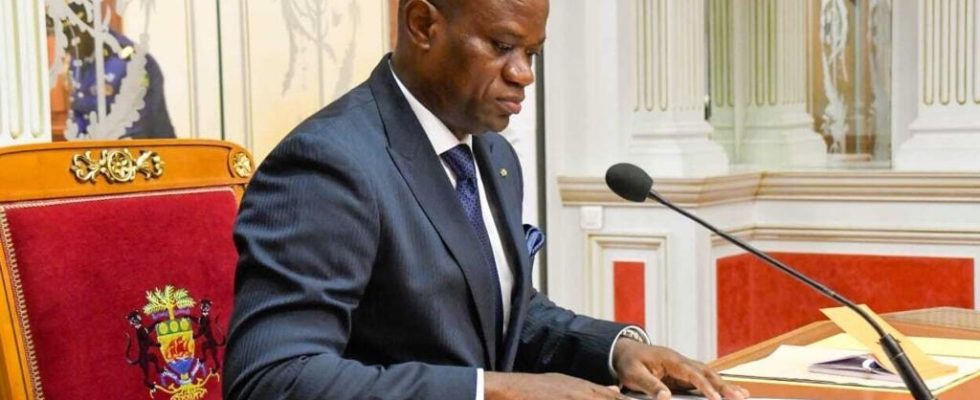The president of the Gabonese transition, Brice Clotaire Oligui Nguema, arrived this Thursday in Riyadh in Saudi Arabia where he is participating this Friday in the first Saudi Arabia-Africa summit. This trip is the very first of the strong man of Libreville outside the African continent since the military putsch of August 30 which brought him to power after overthrowing the regime of former president Ali Bongo Ondimba.
1 min
With our correspondent in Libreville, Yves-Laurent Goma
For this first outing outside the continent, General Brice Clotaire Oligui Nguema swapped his military fatigues for an impeccable suit and tie. Unlike Western countries, Saudi Arabia has not announced sanctions against Gabon following the August 30 coup which overthrew the regime of Ali Bongo, a practicing Muslim who made at least two pilgrimages there. per year.
According to a source close to the presidency, at the Riyadh summit, General Oligui Nguema will plead in favor of environmental protection, particularly the forests of the Congo basin which cover more than 85% of Gabonese territory.
Lobbying actions
But the transition president’s agenda also includes lobbying actions in favor of lifting sanctions against Gabon and a plea for better support for the transition at the end of which, Oligui Nguema promises free elections. , credible and transparent.
Cooperation between Riyadh and Libreville is already fruitful on the religious level. Saudi Arabia is the main supporter of the development of Islam in Gabon. Many theologians were trained in this kingdom.
Between Saudi Arabia and Africa, relations dating back half a century
Since the 1970s, the Saudi kingdom has been forging diplomatic ties with the African continent, which it strengthened in 2018 by appointing a Secretary of State dedicated to African Affairs. The Gulf country has distinguished itself in crises, some of which are still shaking the Horn of Africa and the Sahel: mediator in the Ethiopia-Eritrea conflict, current negotiator in the war that has been tearing Sudan apart for seven months or even a financial contributor in the fight against terrorism for the benefit of the G5 Sahel!
Religious diplomacy remains the main “soft power” tool of the Wahhabi power: scholarships to train imams, construction of mosques… and of course the issuance of visas for the pilgrimage to Mecca which constitutes a means of pressure on the partners of the kingdom.
